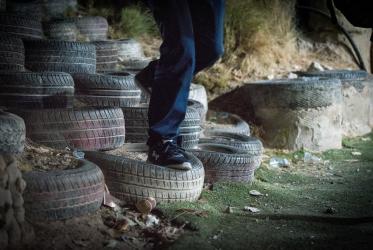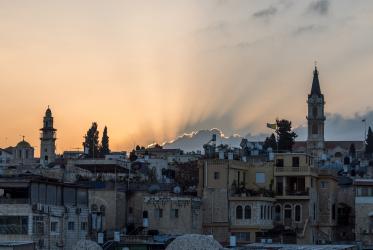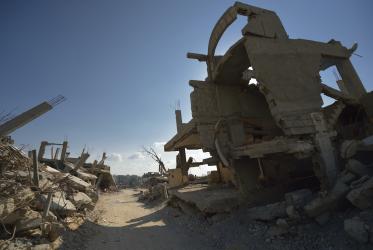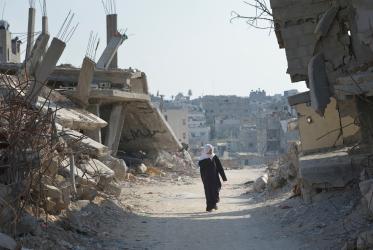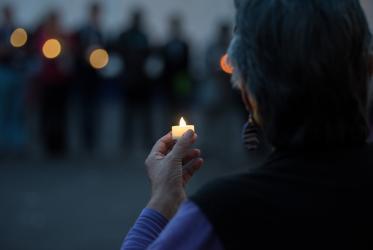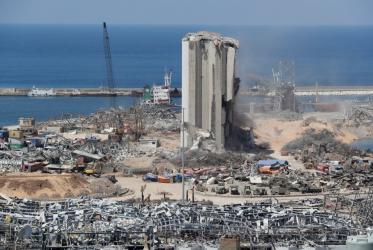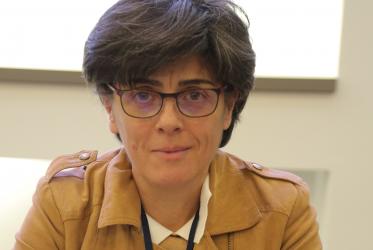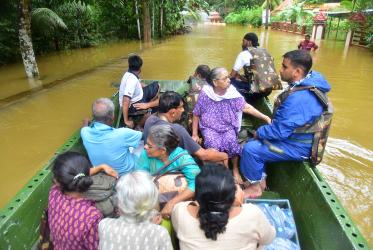Displaying 1 - 20 of 30
Easter Initiative 2024
01 March - 05 May 2024
WCC calls for immediate end to brutal violence in Gaza
30 December 2023
WCC calls for an end to violence in West Bank
23 February 2023
WCC extends condolences in wake of crowd crush in South Korea
31 October 2022
In Lebanon, “without peace there is no justice”
21 July 2021
Hope prevails in times of crisis in Lebanon
14 September 2020
Church response to Australian bushfires hinges on preparation
07 January 2020
Dr Saïd Ailabouni: God is on the side of rejected, oppressed, occupied
12 September 2019
In Japan, indigenous and ecumenical youth call for action against racism
12 September 2019
